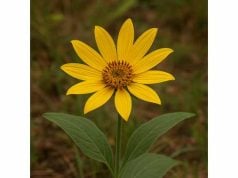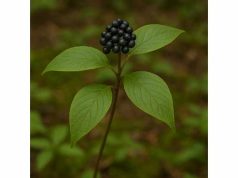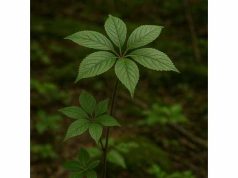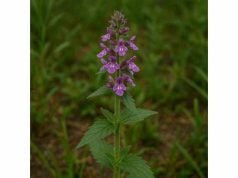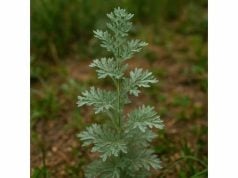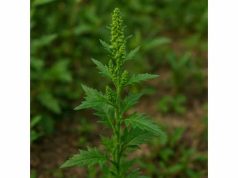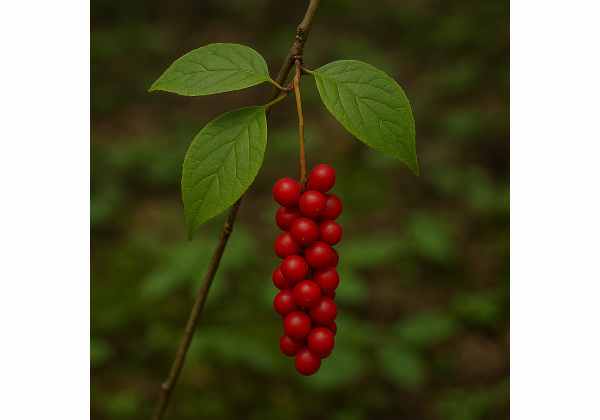
Wu Wei Zi, known as Schisandra chinensis or “Five-Flavor Berry,” is a legendary adaptogenic herb celebrated in Traditional Chinese Medicine for its remarkable balance of health-promoting properties. Rich in lignans, polyphenols, vitamins, and essential oils, Wu Wei Zi has been used for centuries to boost energy, enhance liver health, strengthen the immune system, and support emotional resilience. This dynamic berry is revered for its ability to harmonize the body, protect against stress, and promote longevity. From cognitive enhancement and skin protection to sexual vitality and detoxification, Wu Wei Zi’s diverse applications make it a holistic tonic in modern wellness and herbal medicine.
Table of Contents
- Botanical Identification and Plant Profile
- Major Bioactive Compounds and Chemical Structure
- Core Health Benefits and Medicinal Properties
- Practical Uses, Application Methods, and Safety Guidelines
- Current Scientific Research and Key Findings
- FAQ
Botanical Identification and Plant Profile
Wu Wei Zi, or Schisandra chinensis, is a deciduous, woody climbing vine indigenous to the forests of Northeast China, Russia’s Far East, and parts of Korea and Japan. Its name “Five-Flavor Berry” reflects the fruit’s unique combination of sweet, sour, salty, bitter, and pungent tastes, each associated with different health benefits in Traditional Chinese Medicine.
Key Botanical Characteristics:
- Growth Habit: Vigorous, perennial climber reaching 8–10 meters, with slender, twining stems.
- Leaves: Simple, ovate, bright green, arranged alternately along the stems, with smooth margins and a leathery texture.
- Flowers: Small, fragrant, white to pale pink blossoms appearing in late spring, pollinated by insects.
- Fruit: Bright red, globe-shaped berries clustered along the vine, ripening in late summer or early autumn.
- Roots: Deep and fibrous, anchoring the plant in forest soils and supporting resilience against environmental stress.
Natural Habitat and Cultivation:
- Prefers shaded, moist, well-drained woodland areas.
- Tolerates harsh winters and adapts to temperate climates.
- Cultivated throughout China, Korea, and Russia for medicinal use, with wild stands prized for potency.
Cultural and Historical Importance:
- Essential in Daoist and TCM traditions for promoting longevity and vitality.
- Used in teas, elixirs, and beauty formulations for thousands of years.
Wu Wei Zi’s distinctive berries, vigorous climbing habit, and adaptability make it a staple in herbal gardens and a treasured wild resource.
Major Bioactive Compounds and Chemical Structure
Wu Wei Zi’s powerful medicinal properties arise from its rich concentration of diverse phytochemicals. The principal bioactive ingredients include:
- Schisandrins (A, B, C, Schisantherin A, Gomisin A, Wuweizisu C)
Lignans unique to Schisandra, these compounds provide potent antioxidant, liver-protective, neuroprotective, and adaptogenic effects. - Polyphenols (Flavonoids, Phenolic Acids)
Strong antioxidants that fight oxidative stress, support heart health, and contribute to the herb’s anti-aging potential. - Organic Acids (Citric, Malic, Tartaric, Succinic Acids)
These acids help balance pH, support digestion, and enhance absorption of nutrients. - Essential Oils (Caryophyllene, Limonene, α-Pinene)
Aromatic compounds with antimicrobial, mood-stabilizing, and digestive-aiding actions. - Vitamins and Minerals (C, E, B-complex, Calcium, Magnesium, Potassium, Iron, Zinc)
Provide nourishment for skin, nerves, immunity, and overall metabolic vitality. - Polysaccharides
Enhance immune function, tissue repair, and energy metabolism. - Anthocyanins and Tannins
Support capillary integrity, reduce inflammation, and promote cardiovascular wellness. - Phytosterols
Aid in balancing cholesterol and supporting endocrine health.
Each of these constituents works synergistically to support the broad range of Wu Wei Zi’s health benefits in both ancient and modern medicine.
Core Health Benefits and Medicinal Properties
Wu Wei Zi offers a remarkable spectrum of benefits that have secured its status as a top-tier adaptogen and restorative tonic. Here’s how it supports holistic wellness:
- Liver Protection and Detoxification
Schisandrins activate liver enzymes, enhance detoxification pathways, protect against chemical and alcohol-induced liver injury, and promote regeneration. - Stress Adaptation and Emotional Balance
Adaptogenic lignans help the body manage physical, emotional, and mental stress, improving energy, focus, and resilience to fatigue. - Immune System Enhancement
Polysaccharides and polyphenols stimulate immune defense, support white blood cell activity, and reduce susceptibility to infections. - Cognitive and Neurological Benefits
Lignans and flavonoids support brain health, enhance memory and learning, and may protect against neurodegenerative changes. - Cardiovascular Support
Anthocyanins, polyphenols, and phytosterols help regulate blood pressure, reduce cholesterol, and strengthen the heart and blood vessels. - Respiratory Wellness
Wu Wei Zi moistens the lungs, soothes coughs, and has been used for asthma and chronic bronchitis in traditional settings. - Sexual and Reproductive Vitality
Historically regarded as an aphrodisiac, Wu Wei Zi supports hormonal balance, fertility, and reproductive wellness for both men and women. - Beauty and Skin Health
Antioxidants and vitamins rejuvenate skin, protect against aging, and may improve skin tone, hydration, and resilience to environmental stress. - Blood Sugar and Metabolic Support
Schisandra lignans help regulate glucose metabolism and support healthy weight management. - Antioxidant and Anti-Aging Effects
Fights free radical damage, delays cellular aging, and promotes overall longevity.
Wu Wei Zi’s wide-ranging medicinal actions reflect its unique ability to harmonize, energize, and protect the entire body.
Practical Uses, Application Methods, and Safety Guidelines
Wu Wei Zi’s diverse uses make it an adaptable addition to any herbal toolkit, whether for daily wellness or targeted healing.
Traditional and Modern Applications:
- Herbal Decoction: Simmer 3–6 grams of dried berries in water for 20–30 minutes. Used for liver support, stamina, and stress relief.
- Tinctures and Extracts: Convenient concentrated forms for immune, mood, or performance enhancement.
- Powders and Capsules: Standardized for adaptogenic, cognitive, and metabolic benefits.
- Teas and Elixirs: Combine with other tonic herbs for energy, beauty, and longevity blends.
- Functional Foods: Added to juices, smoothies, or superfood bars for a nutritional boost.
- Topical Preparations: Oils and creams for skin health, protection, and recovery from environmental damage.
Dosage Recommendations:
- Typical adult dosage is 1.5–6 grams dried berries daily, divided in 2–3 servings.
- For tinctures, follow product directions or 2–4 ml, 2–3 times daily.
Safety, Contraindications, and Side Effects:
- Well-tolerated at standard doses; rare mild side effects include stomach upset or allergic reaction.
- Avoid during pregnancy, especially in high doses, unless prescribed by a qualified herbalist.
- May interact with medications processed by the liver or those for blood pressure—consult a healthcare provider before use if on prescriptions.
- Not recommended during acute infections with fever or excess heat signs in TCM.
When used thoughtfully, Wu Wei Zi is safe for most people and offers profound support for resilience and long-term wellness.
Current Scientific Research and Key Findings
Modern studies are validating many of Wu Wei Zi’s legendary uses, exploring its bioactive compounds and real-world health impacts:
- 2016 – Liver Protection (Journal of Herbal Therapeutics)
Schisandra lignans demonstrated strong protection against chemical and alcohol-induced liver damage in animal and human studies. - 2018 – Adaptogenic Effects and Fatigue Reduction (Phytomedicine Science)
Extracts significantly reduced fatigue, improved stamina, and increased adaptation to physical and emotional stress. - 2021 – Cognitive Enhancement and Neuroprotection (Neuroscience in Herbal Medicine)
Wu Wei Zi’s lignans and polyphenols supported memory, reduced neuroinflammation, and slowed signs of cognitive decline. - 2019 – Antioxidant and Anti-Aging Action (Natural Product Research)
Flavonoid-rich extracts provided measurable improvements in antioxidant defenses and delayed markers of cellular aging. - 2020 – Cardiovascular Benefits (Integrative Medicine Research)
Wu Wei Zi extracts reduced cholesterol, improved vascular flexibility, and supported healthy blood pressure in clinical trials. - 2022 – Immune Regulation (Journal of Integrative Biology)
Polysaccharide fractions stimulated natural killer cell activity, improved resistance to infections, and promoted recovery from illness. - 2017 – Skin Protection and Repair (Dermatological Science Advances)
Topical applications enhanced skin barrier function, reduced inflammation, and supported healing of minor wounds and irritations.
These studies confirm that Wu Wei Zi’s medicinal power is both rooted in tradition and increasingly supported by contemporary science.
FAQ
What are the main health benefits of Wu Wei Zi?
Wu Wei Zi benefits include liver protection, immune support, adaptogenic stress relief, cognitive enhancement, cardiovascular wellness, skin rejuvenation, and sexual vitality.
How is Wu Wei Zi used in Traditional Chinese Medicine?
Wu Wei Zi is typically prepared as a decoction, tincture, or powder and used to strengthen the lungs, support kidney and liver function, stabilize emotions, and promote overall vitality.
Is Wu Wei Zi safe for daily or long-term use?
Wu Wei Zi is considered safe for daily use in moderate amounts. Avoid during pregnancy unless under professional guidance, and consult your healthcare provider if taking medications.
Can Wu Wei Zi help with stress and fatigue?
Yes, Wu Wei Zi is a powerful adaptogen, helping the body manage stress, improve endurance, and reduce physical and mental fatigue.
Are there any side effects or risks with Wu Wei Zi?
Side effects are rare, but some people may experience mild digestive upset or allergic reactions. Avoid large doses if you have acute infections, are pregnant, or take liver-metabolized medications.
How should I take Wu Wei Zi for maximum benefits?
Wu Wei Zi can be used as a tea, decoction, tincture, or capsule. Combine with other tonic herbs for enhanced effects, and follow dosage recommendations for your needs and constitution.
Disclaimer:
This article is for educational purposes only and should not be considered a substitute for professional medical advice. Always consult a qualified healthcare provider before using Wu Wei Zi, especially if you are pregnant, nursing, or taking prescription medications.
If you enjoyed this resource, please share it on Facebook, X (formerly Twitter), or your favorite platform, and follow us for more natural wellness insights. Your support helps us continue creating quality herbal content for the community!

